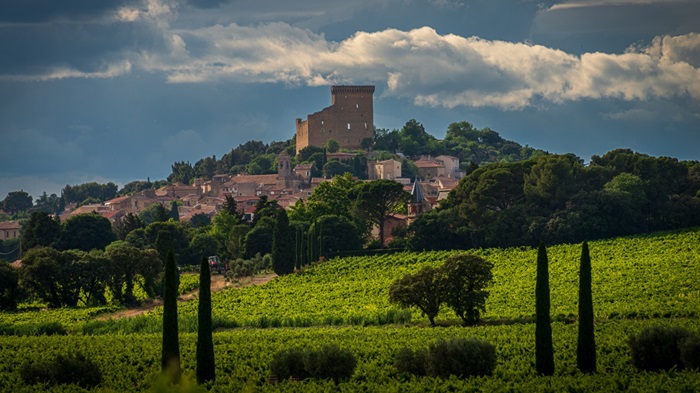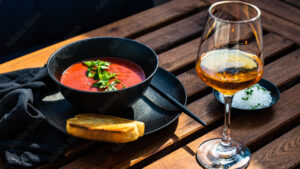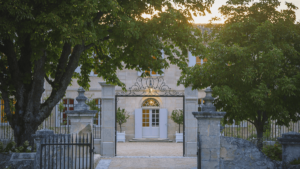
Under the rules laid down by the Châteauneuf du Pape appellation, 13 grape varieties (eight reds and five whites) can be used to produce wine. Why so many varieties, and what is their purpose?
The 13 grape varieties of Châteauneuf
The 13 grape varieties – red and white – authorised to produce Châteauneuf-du-Pape are the appellation’s calling card, and a bit of a postcard too. The reds include Grenache, Syrah, Mourvèdre, Cinsault, Muscadin, Vaccarèse, Counoise, Terret Noir, and the whites are Picpoul, Clairette, Roussanne, Bourboulenc and Picardan. Here’s a fine introduction to the southern Rhône Valley grape varieties, including the most important ones, and their main characteristics.
Grenache: This variety originated in northern Spain and is one of the most widely planted worldwide. It contributes suppleness, fruitiness, and a certain warmth to the wine.
Syrah: Perhaps the most famous red grape variety in the Rhône Valley, it is characterised by notes of spices (pepper) and violets in particular.
Mourvèdre: Originally from southern Spain, this variety was first introduced to Provence in the 16th century. The late ripening grape imparts structure, complexity, and ageing potential to the wine.
Cinsault: Hailing from the Languedoc-Roussillon region, it adds a beautiful suppleness to the wine, with floral, red fruit, and citrus notes.
Roussanne: This variety offers elegance, finesse and a complex array of aromas (fruit, flowers, honey, spices, etc.).
Clairette: Evidence of this grape variety goes back to 1500 in the Hérault region. This variety delivers fruity aromas of peach, apple, grapefruit, tropical fruit, and floral notes.
Bourboulenc: Originating in Aubignon (near Avignon), this grape variety contains little sugar and therefore little alcohol and reveals a lovely freshness and floral notes.
A century-old tradition: Complantation in the vineyards and complementarity in the blends
Grenache prevails across all the estates, accounting for around two-thirds of the varieties planted, followed by Mourvèdre and Syrah. The other ten grape varieties are either not represented at all, or are only found in very small quantities, somewhat acting as the winemaker’s ‘salt and pepper’. Folklore aside, the 13 grape varieties were obviously not chosen at random. Their characteristics compliment and balance one another, particularly in terms of acidity and alcohol. And it is no coincidence that several white grape varieties are authorised to produce red wines as their natural freshness can offset the easily opulent nature of Grenache.
Traditionally, the vines are complanted alongside each other within the same plot and harvested at the same time, frequently with slight differences in ripeness, which could result in fresher, less alcoholic wines. While this tradition has not become lost as the vineyards have modernised, its influence has clearly diminished.
Château Rayas, the most emblematic domain of Châteauneuf, favours a wine containing 100% Grenache Noir. Another Châteauneuf icon, Château de Beaucastel (Perrin family) is one of the rare domains to include all 13 grape varieties in its blend! As for Château de Nalys (Guigal), it has been blending five white grape varieties in its white Châteauneuf and all eight red grape varieties in its red Châteauneuf since the 16th century.
An excellent response to climate change
Given the current challenges posed by climate change in recent years, such as the record alcoholic strengths observed much more frequently than in the past, using multiple grape varieties could provide part of the answer. Should the proportion of Mourvèdre be increased? Should the return to a more systematic complantation approach be encouraged? The answer to these questions remains unclear, and several of the world’s leading winemakers (such as Bernard Magrez and his 75 grape varieties in Bordeaux) are currently testing solutions that will only yield results in a few years…



